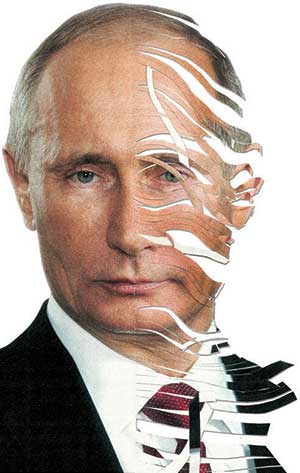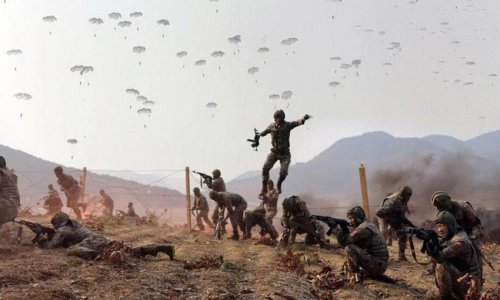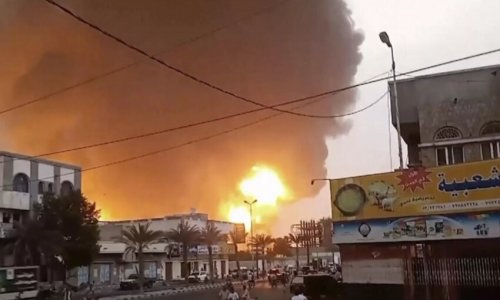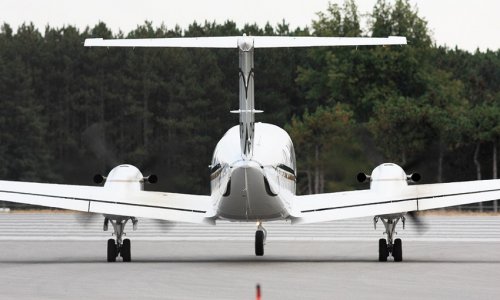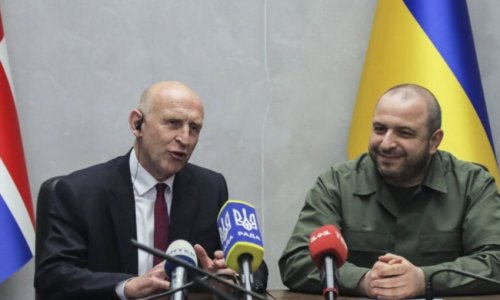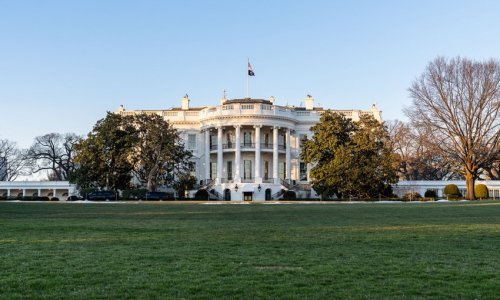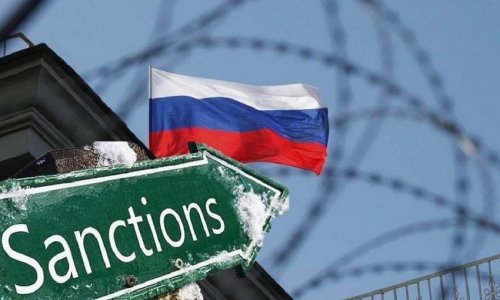The European Union and the U.S. are considering additional sanctions against Russia in technology, energy, defense and banking over its support for separatist rebels in eastern Ukraine.
EU leaders threatened "further restrictive measures” on Russia as soon as Thursday, when the bloc’s foreign ministers meet in Brussels, after the worst clashes between Russian-backed rebels and Ukrainian troops since a September truce.
The U.S. is working with the EU on potential economic penalties, said a State Department official who also made clear how Russia could defuse the situation.
"We’ve looked at the sectors where Russia needs us most -- the high-tech energy sector, the defense trade, access to credit,” Assistant Secretary of State Victoria Nuland said in Washington on Tuesday. "There are more things that we can do along those lines, we are looking at that question now, along with Europe.”
She didn’t say whether the U.S. and EU are weighing penalties on entire industries -- known as sectoral sanctions -- rather than continuing to zero in on individual companies and officials close to Russian President Vladimir Putin.
Thursday’s EU meeting will widen a list of people facing visa bans and asset freezes over Russia’s involvement in the conflict, Latvian President Andris Berzins, whose country holds the bloc’s rotating presidency, said in an interview Monday.
Greece’s Questions
Underlining a possible split with the 28-member EU, though, Greece’s new Syriza-led government questioned moves to impose more sanctions on Russia. Prime Minister Alexis Tsipras’s government said it opposed the EU threat of additional curbs on the Kremlin over Ukraine, and complained it hadn’t been consulted.
EU leaders condemned "indiscriminate shelling” that killed dozens of civilians in the Ukrainian port city of Mariupol and said the Jan. 29 meeting of foreign ministers will "consider any appropriate action, in particular on further restrictive measures,” EU President Donald Tusk said in an e-mailed statement from Brussels.
"We note evidence of continued and growing support given to the separatists by Russia, which underlines Russia’s responsibility,” the EU leaders said in the statement.
Russia’s ‘Off-Ramp’
"There is an off-ramp for Russia, a route back to better ties with all of us and it’s very, very simple,” Nuland said at the Brookings Institution, a Washington policy group. "The minute Russia allows Ukraine to control its side of the international border and stops fueling the conflict, the situation will improve.”
The EU is drawing closer to taking action in tandem with the U.S. after Saturday’s rocket attack in the strategic city of Mariupol in which at least 30 people died and more than 100 were injured. Fighting between pro-Russian separatists and government troops has intensified along the front that stretches across Ukraine’s easternmost regions of Luhansk and Donetsk to the Sea of Azov in a crisis that Putin has blamed on the government in Kiev.
The U.S. has established a clear pattern of responding to Russian escalation by finding ways to increase pressure, said an official who asked not to be identified briefing reporters on Air Force One as President Barack Obama returned from Saudi Arabia on Tuesday.
Russia as ‘Aggressor’
Ukraine’s parliament declared Russia an "aggressor” state Tuesday and called on the international community to do the same, in a resolution passed by 271 lawmakers in the 450-seat legislature. It also labeled the separatist Donetsk People’s Republic and Luhansk People’s Republic as terrorist organizations.
The designation is "thoughtless and irresponsible,” Russian Deputy Foreign Minister Grigory Karasin said, according to the Interfax news service, and the decision is intended to block the search for compromise in Ukraine.
The declaration "formally explains Ukraine’s position and gives additional arguments to its Western partners to give a more adequate response to Russia’s aggression,” Oleksiy Haran, a professor of political science at the Kyiv-Mohyla University, said by phone.
Ukraine, the U.S. and the EU accuse Russia of sending troops and weapons into the conflict zone to support the separatists. The Kremlin denies military involvement.
Putin Blames Ukraine
Putin told German Chancellor Angela Merkel and French President Francois Hollande in separate phone calls Monday that he holds Ukraine accountable for the escalation in violence, according to a Kremlin statement.
Talks between the belligerents could take place within days in a Ukraine contact group meeting in Minsk, Belarus, Interfax reported Tuesday, citing Vladyslav Deinego, chief negotiator for the Luhansk rebels. The contact group includes Ukraine, Russia, the Organization for Security and Cooperation in Europe and separatist leaders.
Deinego said the issue of prisoner exchanges is also being discussed, according to Interfax.
Nine government troops were killed and 29 wounded in clashes in the past 24 hours, Ukrainian military spokesman Leonid Matyukhin said in Kiev. Rebels attacked Ukrainian troops 120 times in that period, he said.
The death toll in the conflict is now more than 5,000, with Jan. 13-21 becoming "the most deadly period” since the Sept. 5 truce was signed in Minsk, Belarus, according to the United Nations.
(Bloomberg)
ANN.Az
Follow us !

